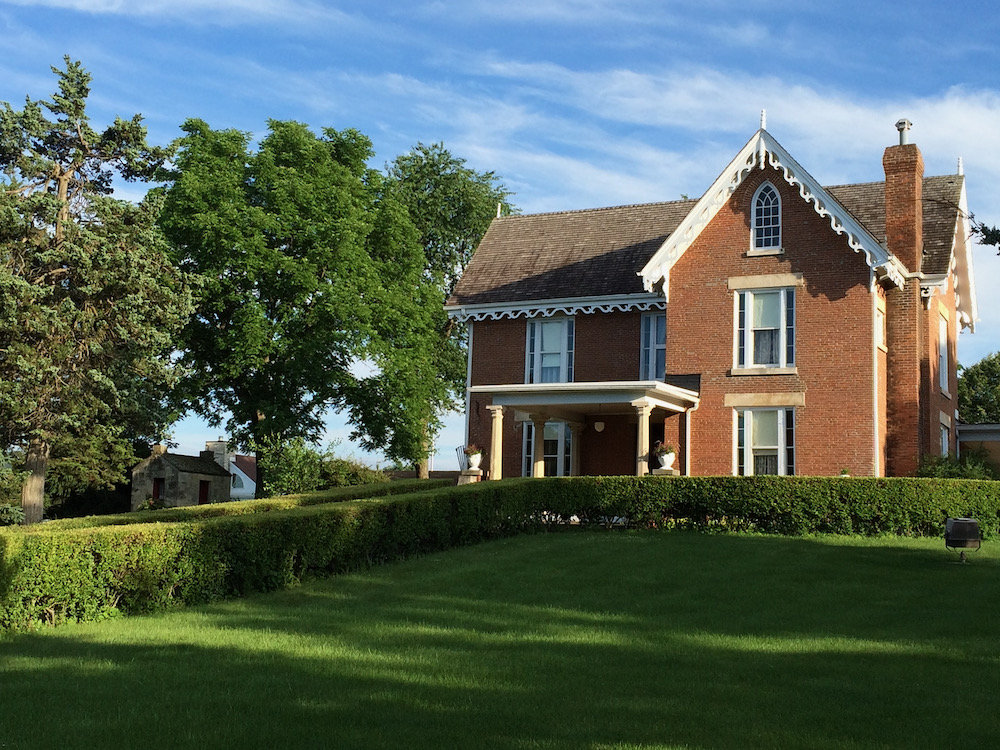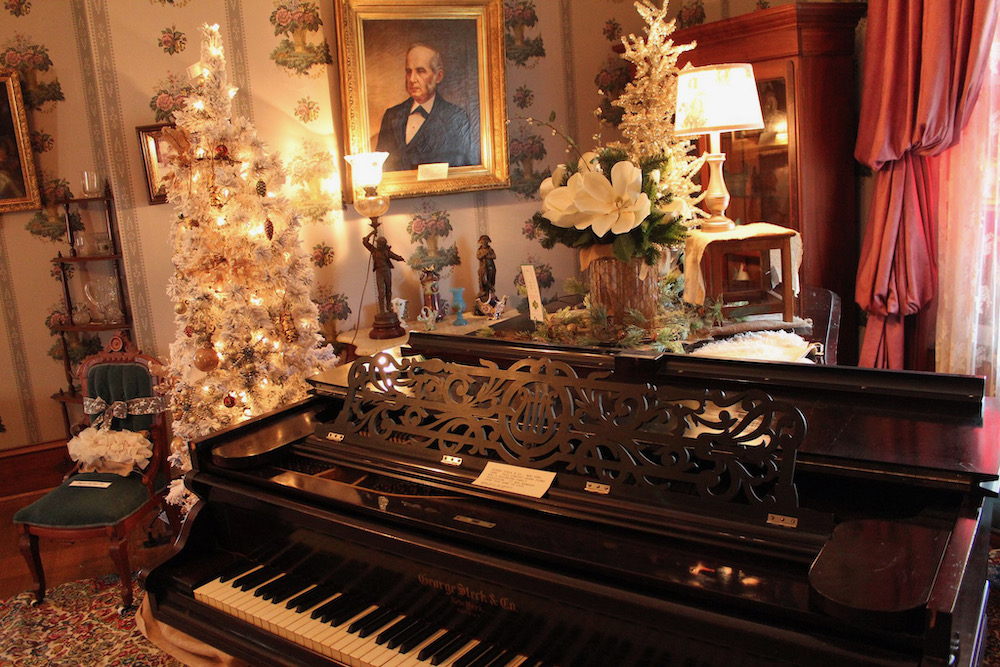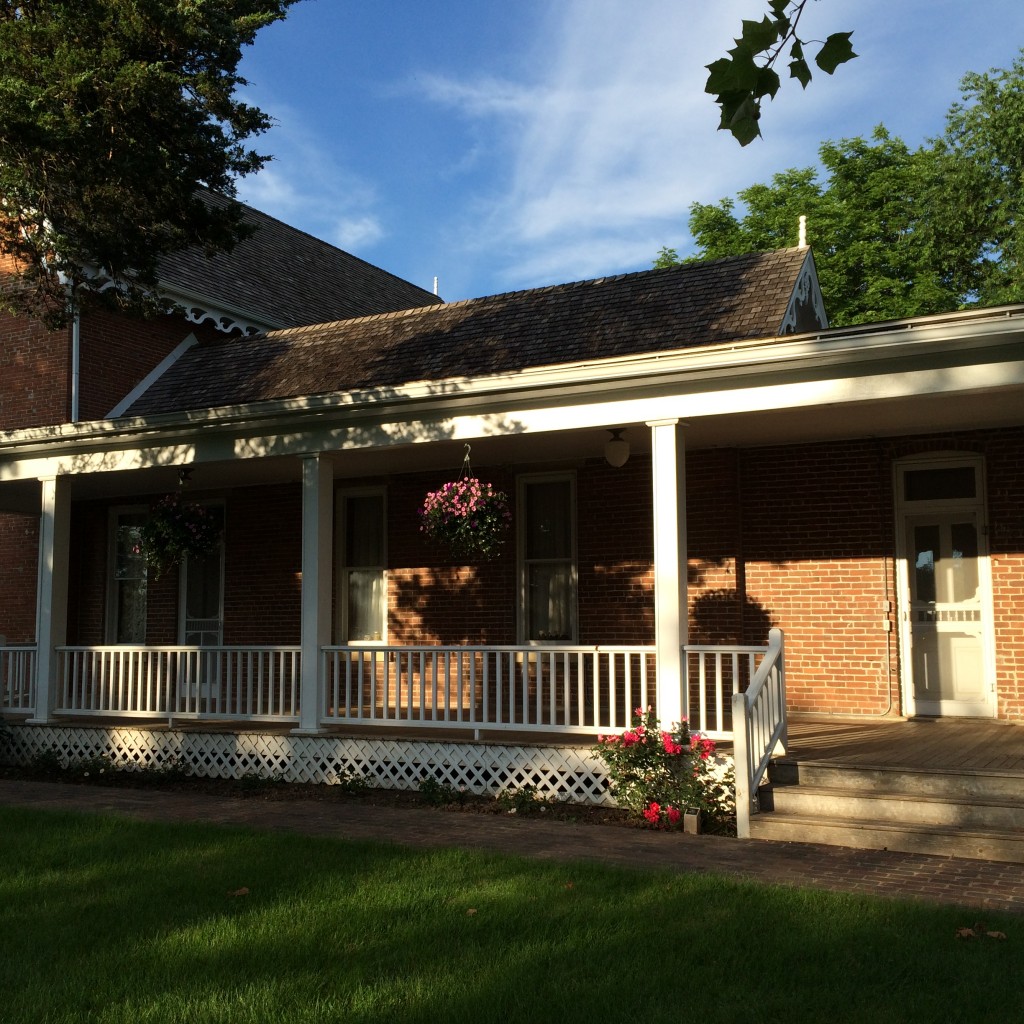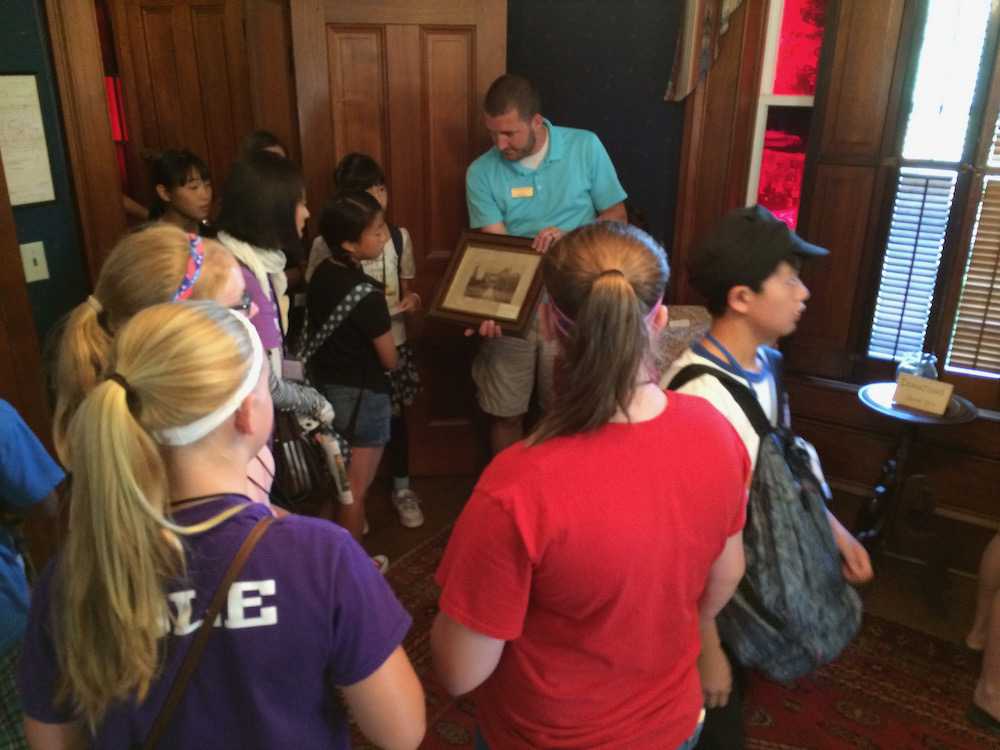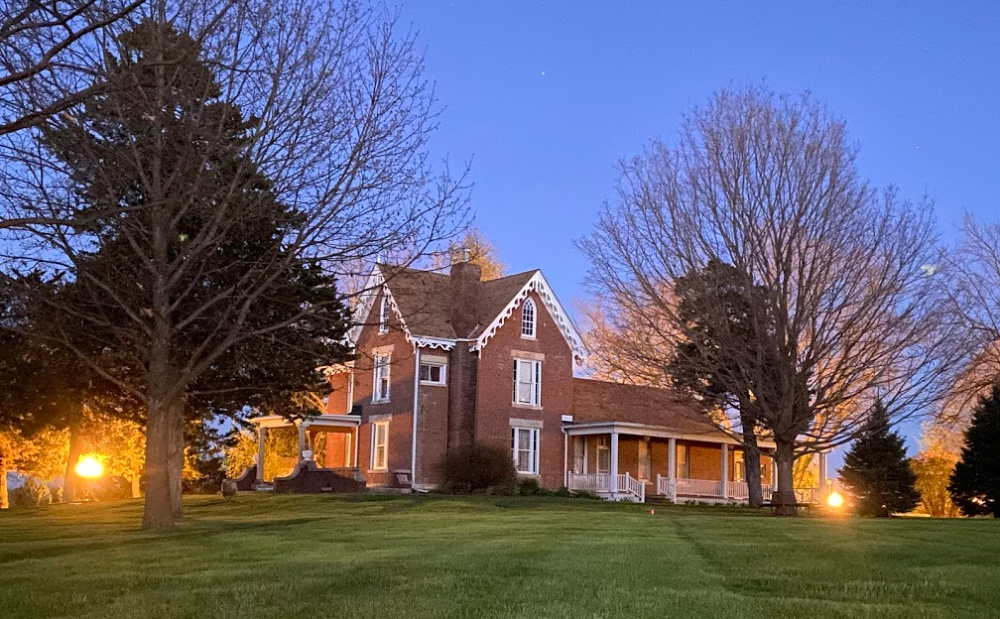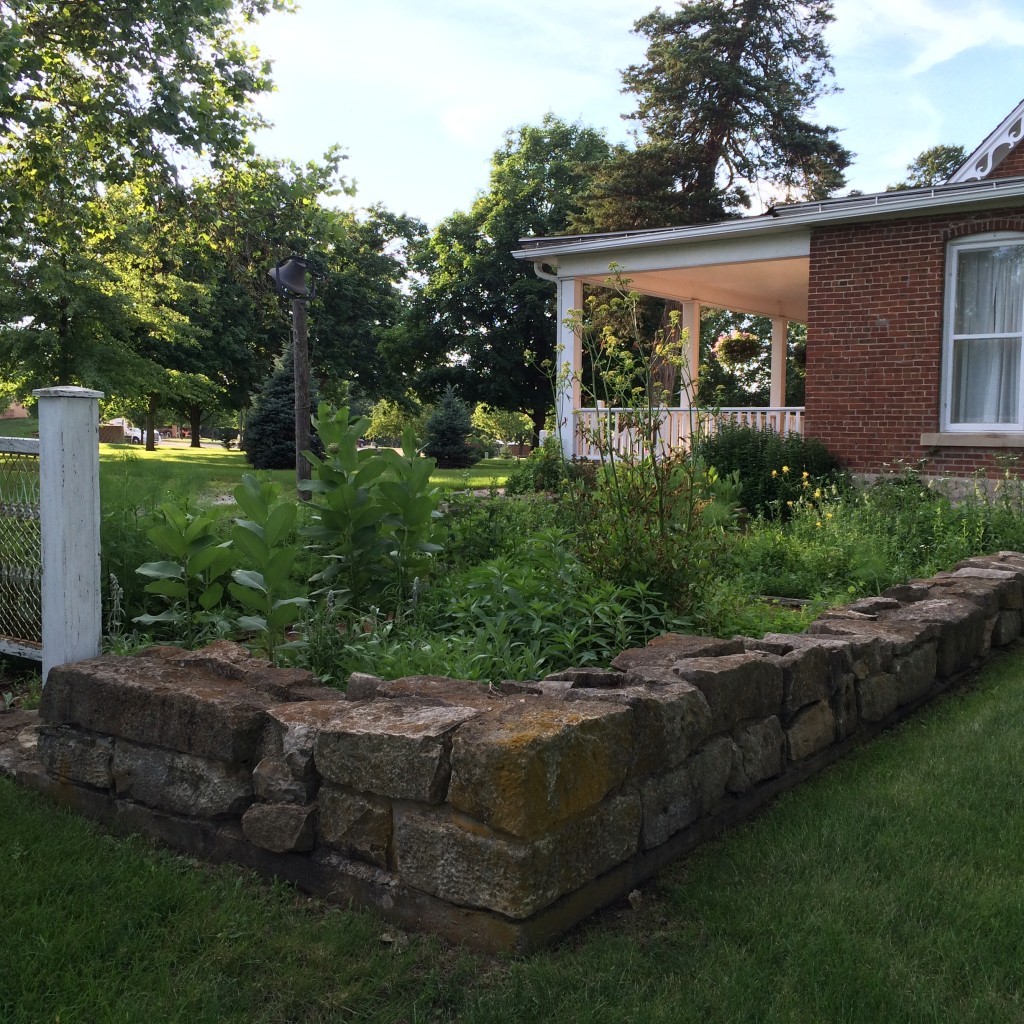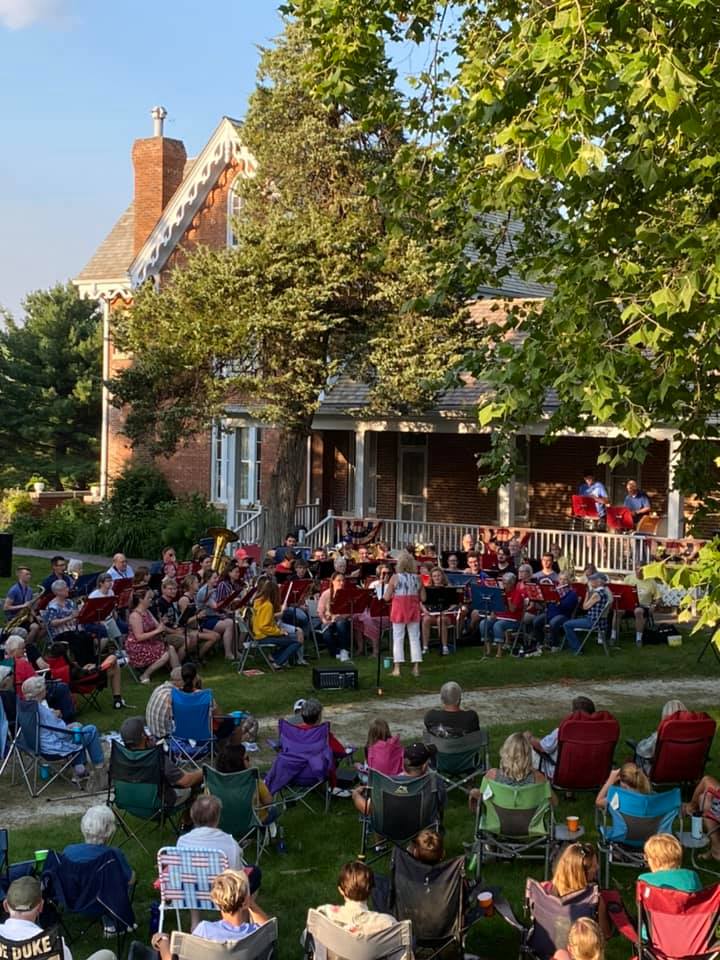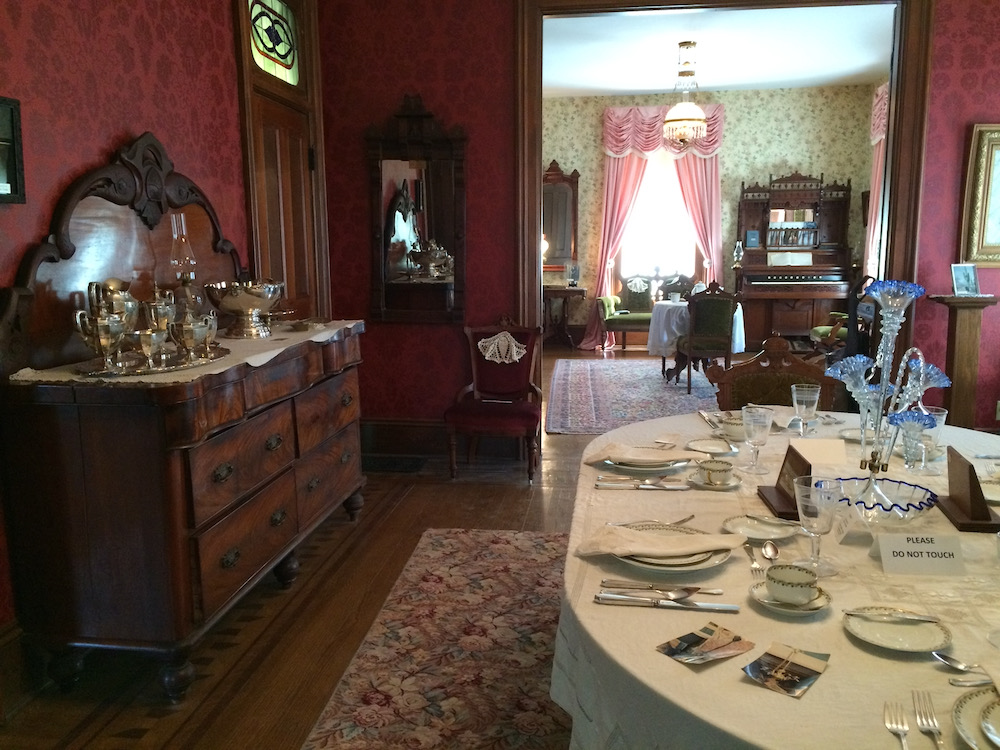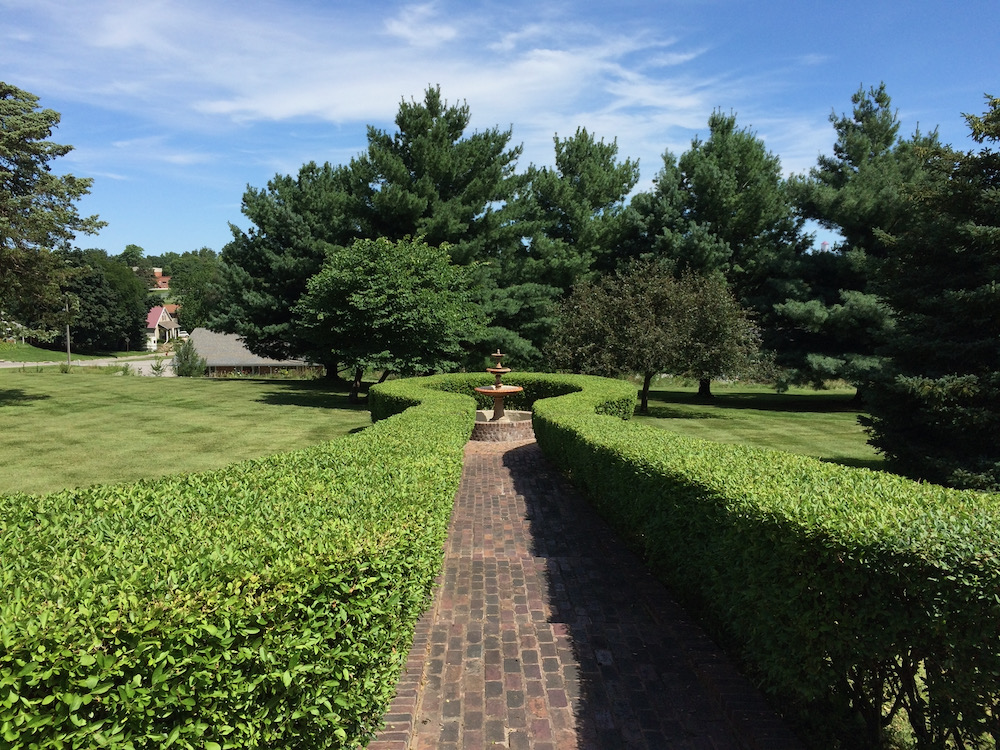Bevington Mansion & Stone Privy

Charles D. or “Doc” was born in Holmes County, Ohio in 1826 where he studied law and pharmacy, prior to making his fortune in the West during the Gold Rush days. In 1853, he came to Winterset on his return to visit others from Holmes County who had settled here. He brought three brides to this home, two dying from childbirth. He was married to his last wife, Eliza, for 45 years. Then their daughter, Lida May or “Mayme” Bevington Alexander Smalley, lived in the house until 1934.
Doc Bevington was very wealthy man and an active participant in most business and civic activities in Winterset for 50 years. He sold real estate, owned businesses, a bank, farmland, timber, quarries, and much livestock. From his perch here on the hilltop, he could see several downtown buildings that he owned and the town he helped create.
When he build this house in 1856, the limestone came from his nearby quarry, the bricks came from his kiln, and the walnut came from the hillside below the house. In days gone by, many Madison County children spent winter days sledding down the northeast section of the yard, affectionately known as “Mayme’s Hill.”
In 1976, it was listed on the National Register of Historic Places, along with the privy and stone barn.
The last private owner was June Kaser who gifted the house to the Madison County Historical Society at her death in 1982. It was restored to the Bevington family’s era, with the Madison County Antique Association played a large part in furnishing the rooms.

The limestone privy was built in 1856 and listed on the National Register of Historic Places (NRHP) in 1976, one of five across the United States. It is a “3-holer,, with each seat being a different size for comfort.
It has walnut woodwork and would have been wallpapered. Heat came from an oil stove. Cat tails dipped in kerosene and placed in a reflector stand would have provided light for visits after dark. The chimneys seen on each end were to vent the fumes from the vault below so that the inside of the privy did not hold unpleasant odors.

